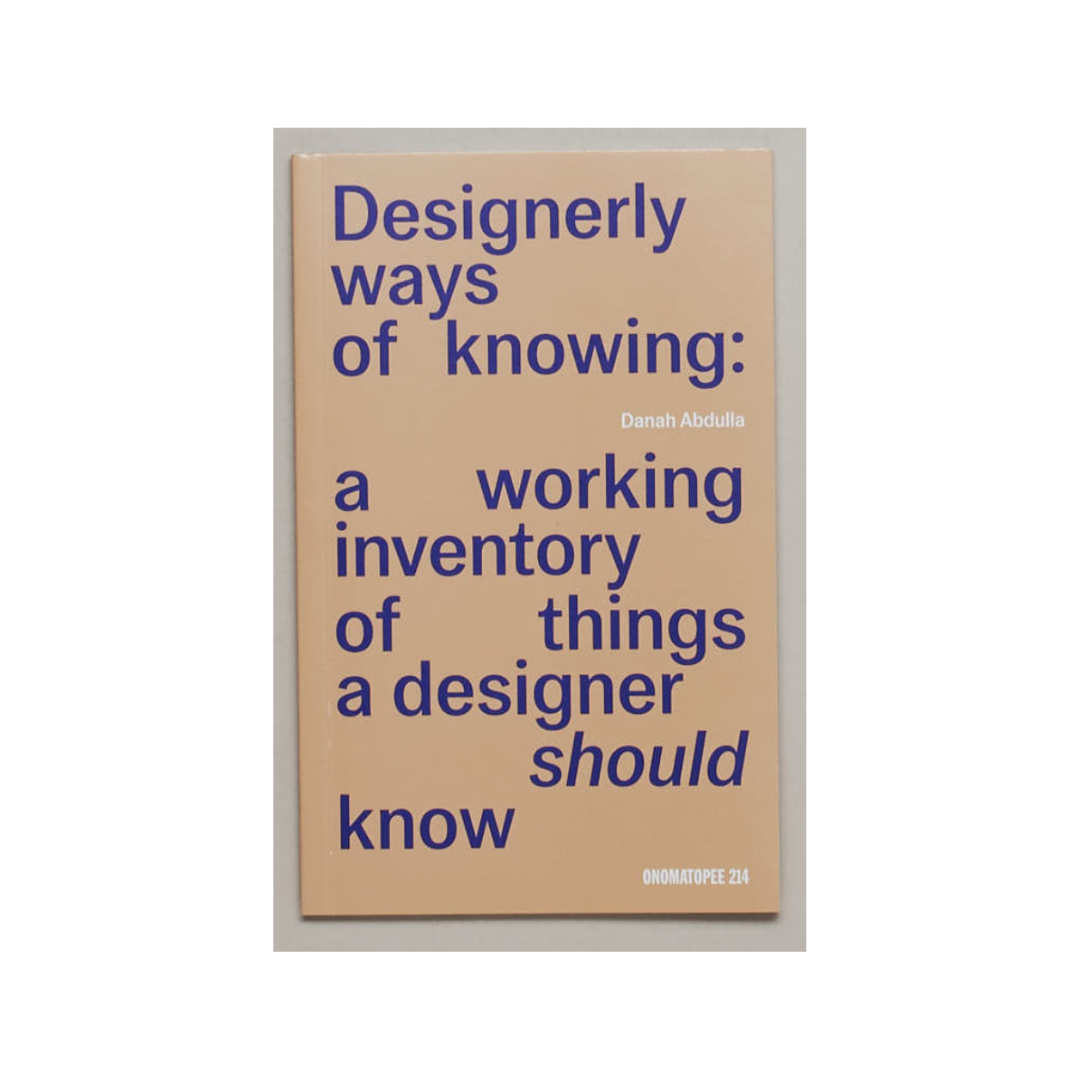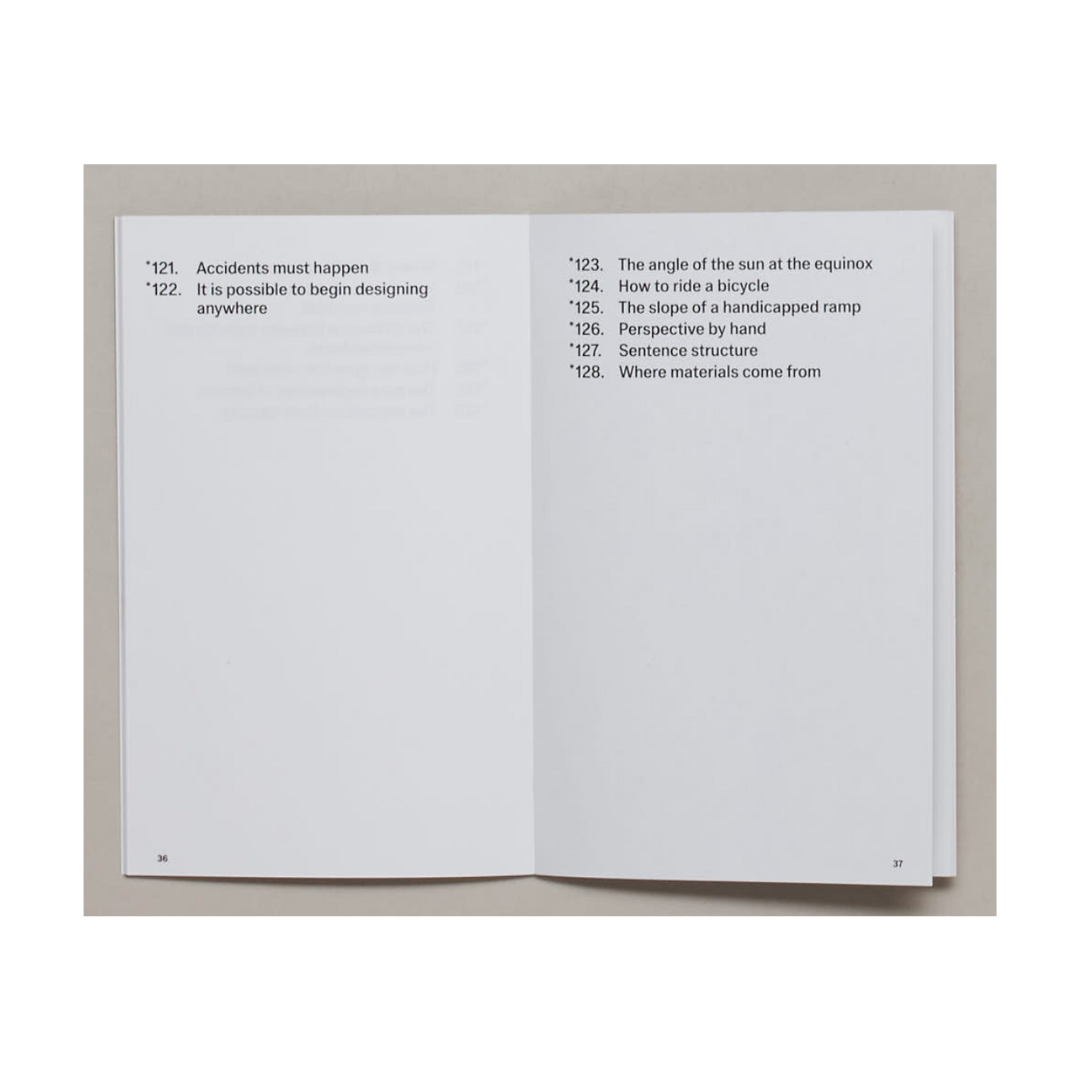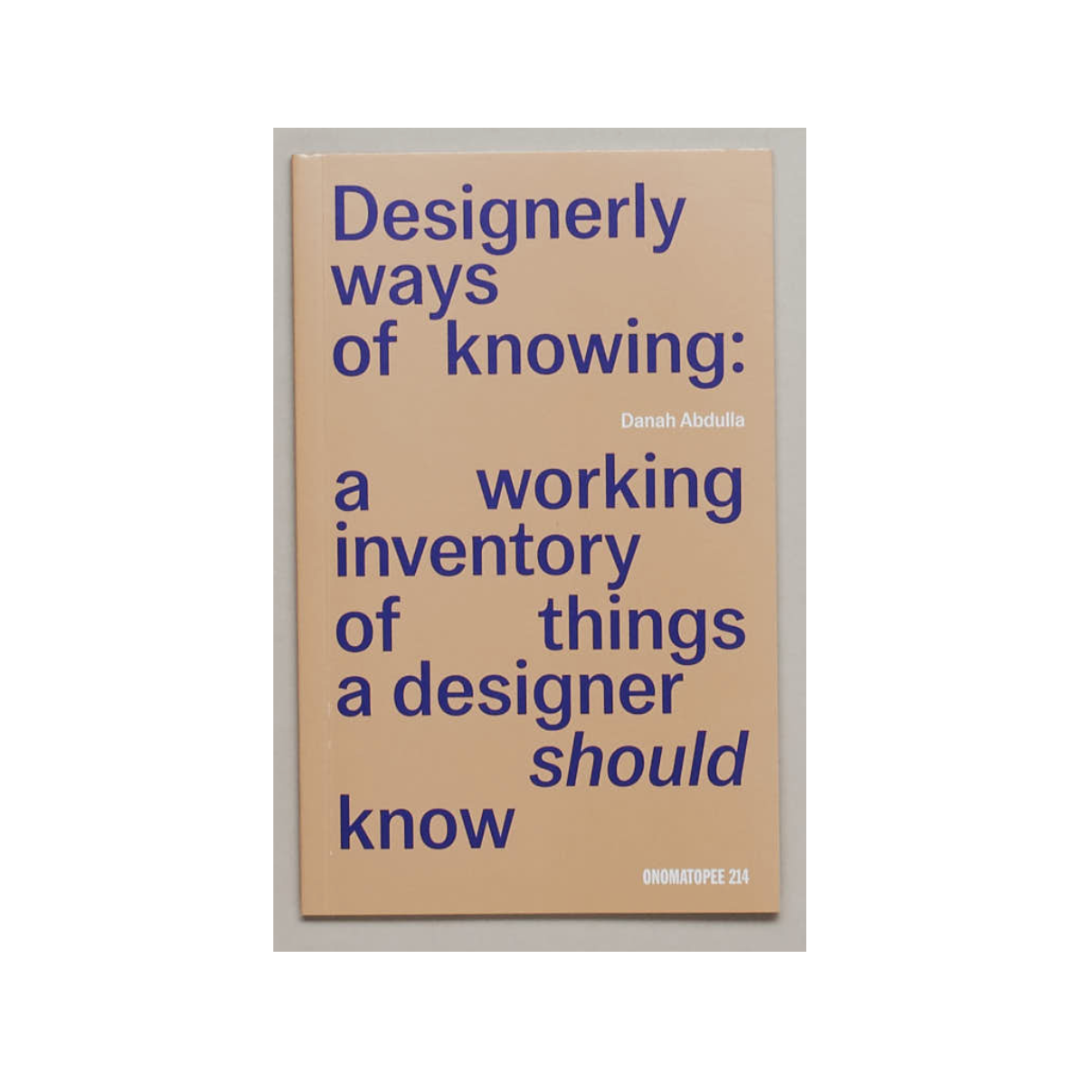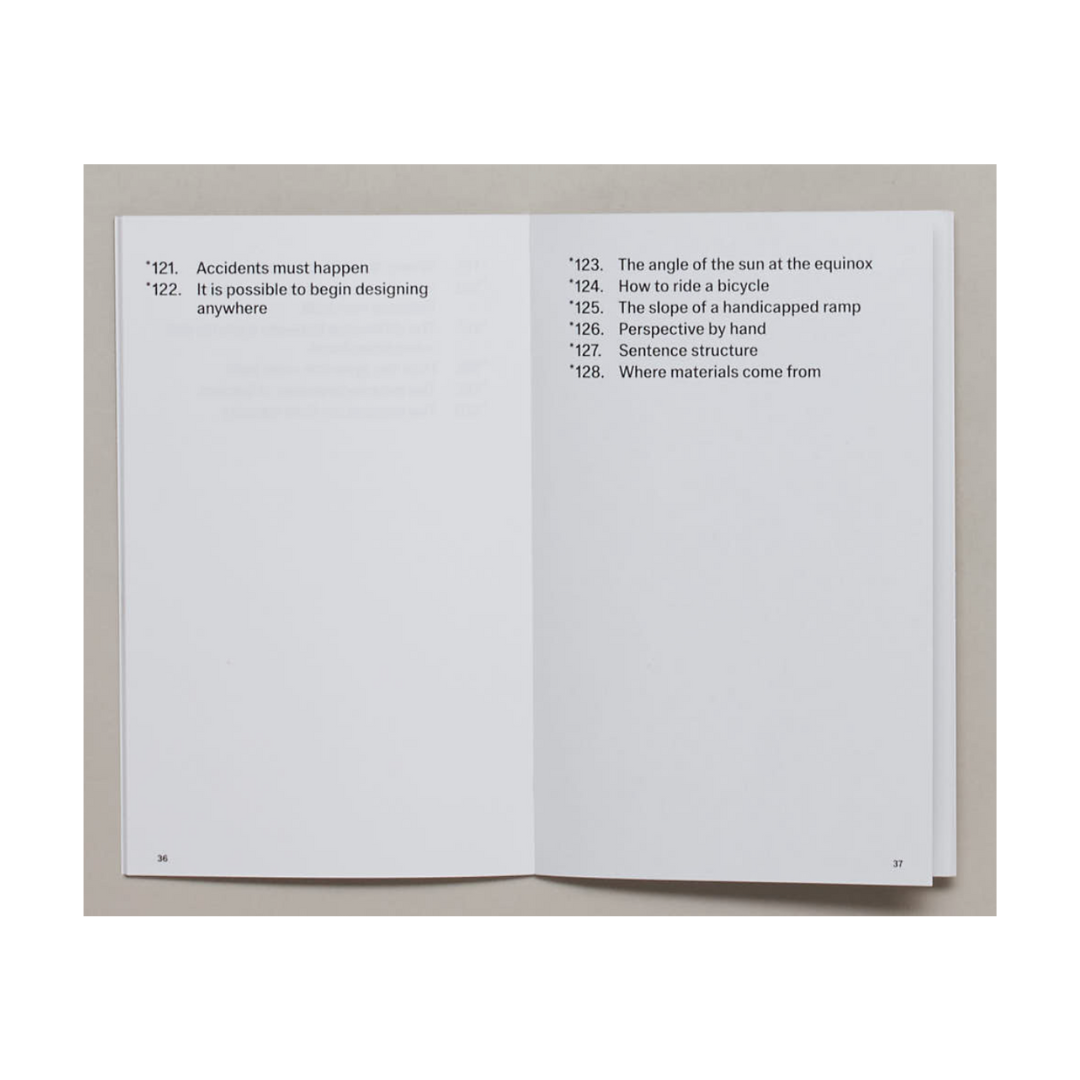Designerly ways of knowing
Designerly ways of knowing
Couldn't load pickup availability
Design thinking has created divisions in the discipline: either designers are too theory driven or simply practitioners. Those feeling lost can easily turn to a language meant to inspire creative production in easy to pitch ways, where rhetoric uses design to keep power at bay, to celebrate hegemonic beliefs which are used to indoctrinate designers in bad education, incapable of imagining different futures. If you take away the post-its, the A3 papers and the markers, can designers think?
Led by Antonio Gramsci’s advice that knowing thyself requires compiling an inventory, design critic, educator and researcher Danah Abdulla pays tribute to the late architect, activist and critic Michael Sorkin, whose original list "Two Hundred and Fifty Things an Architect Should Know" inspired this updated version targeted at designers. The iterative list is not meant to be a definitive how to guide, but to spark conversations, to prompt critical thinking and to help designers reconfigure their discipline.
about the author
Danah Abdulla is a Palestinian-Canadian designer, educator and researcher interested in new narratives and practices in design that push the disciplinary boundaries and definitions of the discipline. She is Programme Director of Graphic Design at Camberwell, Chelsea and Wimbledon Colleges of Arts (University of the Arts London). She has previously held positions at Brunel University London and London College of Communication (University of the Arts London). Danah obtained her Ph.D. in Design from Goldsmiths, University of London and is a founding member of the Decolonising Design platform. In 2010, she founded Kalimat Magazine, an independent, nonprofit publication about Arab thought and culture. Her research focuses on decolonising design, possibilities of design education, design culture(s) with a focus on the Arab region, the politics of design, publishing, and social design.
Share




